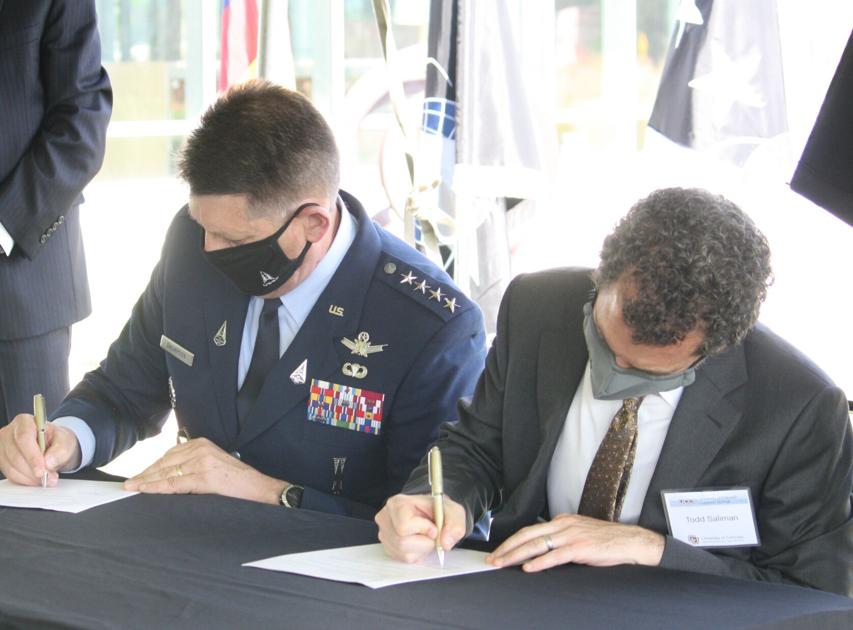The University of Colorado and the U.S. Space Force on Friday began a partnership that officials say will help the U.S. maintain its predominance in aerospace technology, research, development and security.
At the university’s Colorado Springs campus, president Todd Saliman and Space Force Vice Chief of Space Operations Gen. David Thompson signed a Memorandum of Understanding that symbolizes the university’s participation in the Space Force’s University Partnership Program.
The program will broaden scholarship, internship and mentorship opportunities for university students, help Space Force Guardians further their academic and professional development, and bolster the military and civilian aerospace sectors with some of the finest scientific minds in the country, Thompson said.
“The state of Colorado and community of Colorado Springs have long been key members and supporters of the national security space enterprise,” said Thompson, who graduated from the Air Force Academy in 1985. “So it’s fitting for the Space Force to establish a formal partnership between the University of Colorado and the Space Force.”
University of Colorado is one of 11 colleges slated to join the partnership program in the coming months, including University of Southern California, Massachusetts Institute of Technology, University of Texas and Howard University, officials said.
Universities were selected based on a number of factors including the quality of STEM degree offerings, space-related research facilities, veteran student population, and strong ROTC programs, officials said.
The signing, according to UCCS Chancellor Vankat Reddy, signifies the university’s commitment to “the highest levels of innovation, workforce development, and research in space sciences for years to come.”
University President Todd Saliman, who was named to the post in June, said the partnership will strengthen an already formidable bond between the university, the state of Colorado and the aerospace industry. University graduates are currently working for about 250 regional aerospace and cyber organizations, and Colorado boasts the largest per capita aerospace and defense economy in the nation, according to Saliman.
“We’re a small but very mighty state, and we’re going to be stronger because of this partnership,” he said.
Thompson said the University of Colorado system was a natural choice for a partnership with the Space Force and the first system that came to mind in initial discussions about the program.
“It’s a world-class research university system, especially when it comes to space,” he said. “We very quickly understood, in conversations with university leadership, that we shared common goals in many ways, shapes and forms.”
While the U.S. continues to lead the world in the areas of space research, exploration and defense, other countries have been observing American progress and are beginning to narrow the gap, Thompson said.
“Some of those actors, who are catching up, are not our friends, and in fact likely intend to do us harm,” he said. “For those reasons, and to meet those challenges, the United States Space Force was created.”
The memorandum signing was a significant event, but is only the first step in defining the partnership, Thompson said. The next step will be to work with the University of Colorado and the other partner institutions to outline the specific measures necessary to meet the program’s objectives.
“This is really only the beginning,” Thompson said. “It provides the opportunity for all of us together to really explore, understand, develop and forge what that relationship should look like, to the mutual benefit of both organizations and for the benefit of the nation going forward.”
This content was originally published here.

